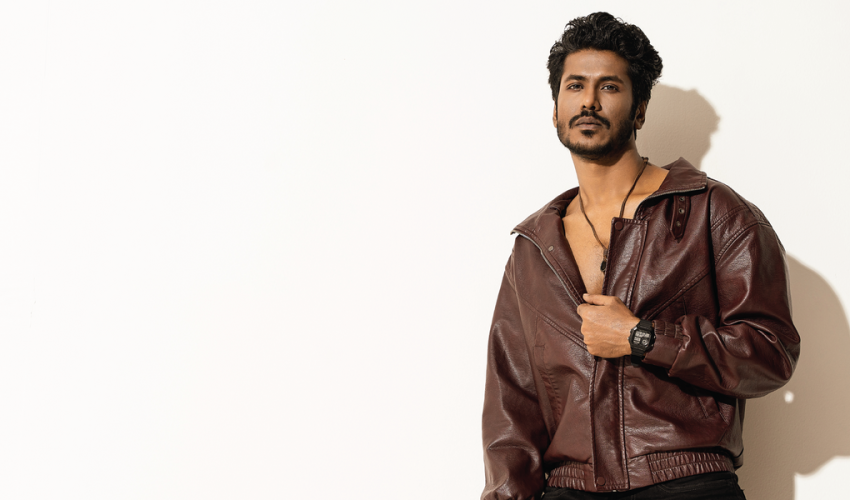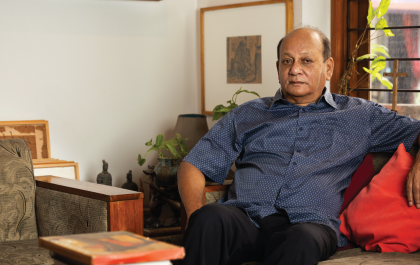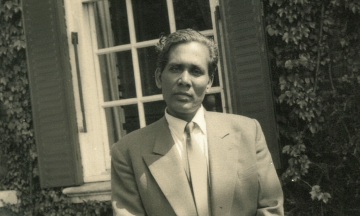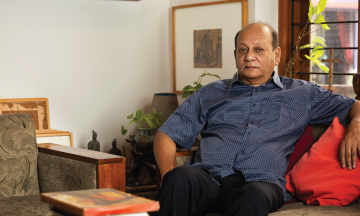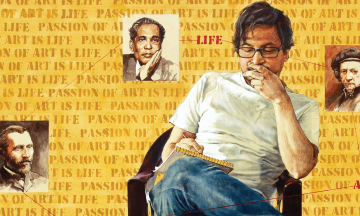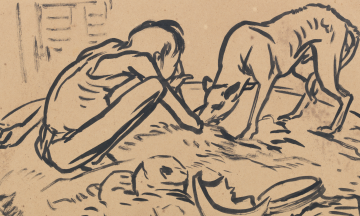By Neha Shamim
Shohel Mondol hails from Bogura, Bangladesh, and his journey in acting began with a strong foundation in theater. He was deeply involved with Nagorik Natyangon and then Prachyanat where he honed his acting skills and developed a passion for storytelling. His time in the theater helped shape his naturalistic acting style and taught him to explore complex characters.
Shohel began his career with Rubaiyat Hossain’s acclaimed film Under Construction. He gained widespread recognition for his roles in the hit web series Taqdeer and Refugee, where his natural acting style impressed both critics and audiences. With a strong foundation in theater, Shohel brings authenticity and depth to his performances, effortlessly portraying complex characters. Known for his intense and nuanced acting, he has become one of the most promising talents in the Bangladeshi entertainment industry, consistently pushing creative boundaries and leaving a lasting impact. Shohel’s theater background gave him the discipline and experience that later translated into his powerful on-screen performances in film and web series.
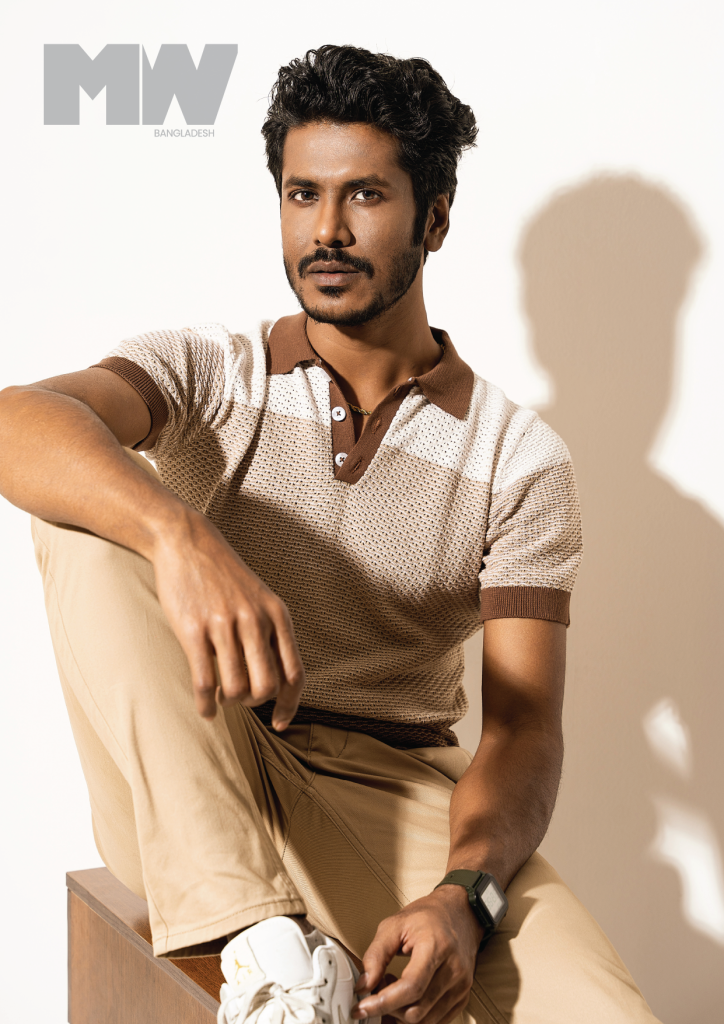
What inspired you to pursue a career in acting?
It’s a recent realization that my journey into acting was very accidental. After finishing my studies, I had a lot of free time. I used to read a lot of books and watch films, which made theater feel exciting to me. One day, I went to see a play and realized that I wanted to do it too.
I joined Nagorik Natyangon School of Drama for a six-month acting course. During my time there, I got introduced to the theater community and its surroundings, and I started enjoying it more and more. Later, I joined Prachyanat, where I did another six-month course and continued to perform.
I never thought of acting as a profession or planned anything. I simply enjoyed performing and focused on my training. Gradually, I gained the confidence to take part in more plays. Through that process, I realized I could become an actor—turning my passion into my profession
You started in theater before moving to film and television—how has that transition been for you?
The transition as an actor is quite similar—the basic training remains the same. After the training, it’s the platform that changes. Stage performance is different, while on-camera work spans multiple platforms such as television, film, and now OTT. The process for OTT and film is quite similar. Theater and film also share many common elements. Both are collective art forms. The key difference is that in film, we shoot in different locations, whereas in theater, everything happens in the same space.
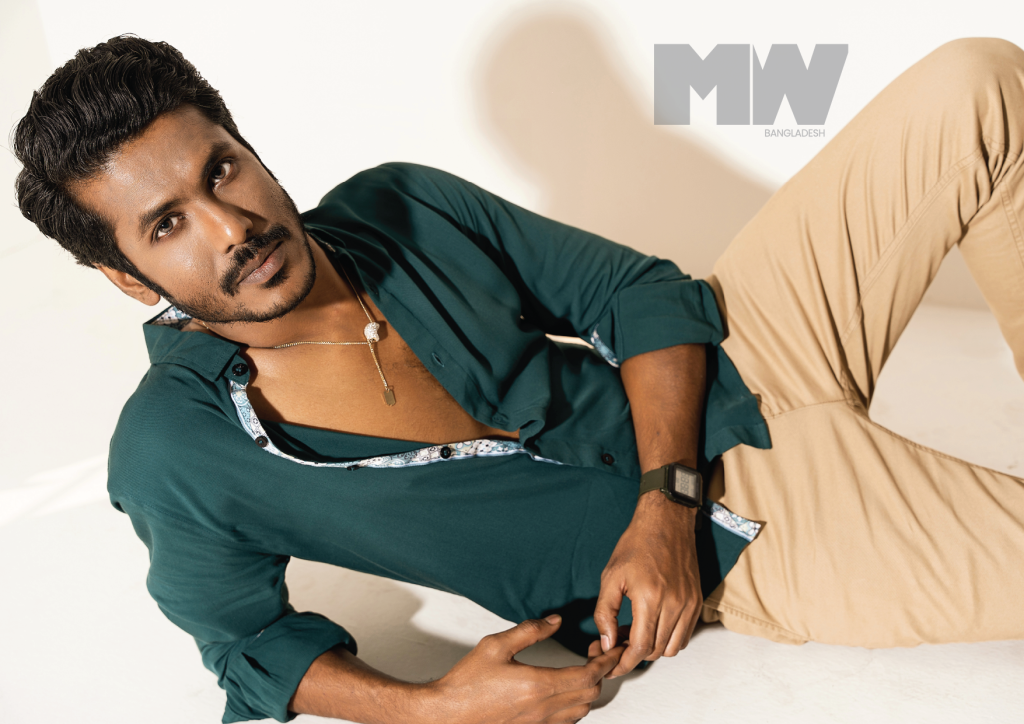
As an actor, the preparation is essentially the same for both. Our responsibility is always to deliver the message to the audience. In theater, we rely on our voice, body language, and dialogue to convey the message to a live audience. In film, we do the same, but it must align with the technical aspects of the shots. The platform may differ, but when it comes to acting, the core process remains the same.
I started my first visual work with Rubaiyat Hossain’s Under Construction. Slowly, I began working on more films and learning the process of acting for the screen.
What was the most challenging role you’ve ever played, and why?
To be honest, I’ve always enjoyed playing challenging roles and actively seek them out. One of my recent works is Refugee, which premiered on Hoichoi. I played a Bihari man—a character very different from my own culture and social structure. Adapting to the language and social nuances of that community was a real challenge for me.
Another challenging role was in Shyama Kabya, where I had to push myself further. Lastly, in Banalata Sen, which hasn’t been released yet, I’ve been working on the character for over a year. It required me to stay in that character’s mindset for a long period—not just the look, but the entire mental state as well.
Your performance in Mayar Jonjal won you the Best Debut Male category in the Filmfare Award—how did that feel?
The whole journey has been intense. It’s a recent realization that nothing really excites me for long. Winning an award or receiving appreciation excites you—it’s human—but it’s momentary. Maya Jonjal was very well-acclaimed, especially in Kolkata, where it received a lot of recognition. For me, the real achievement was working with a director like Indranil Ray Chowdhury. Directors like him are the reason I am who I am today. His craftsmanship, the way he thinks of a character, and his vision are truly inspiring.
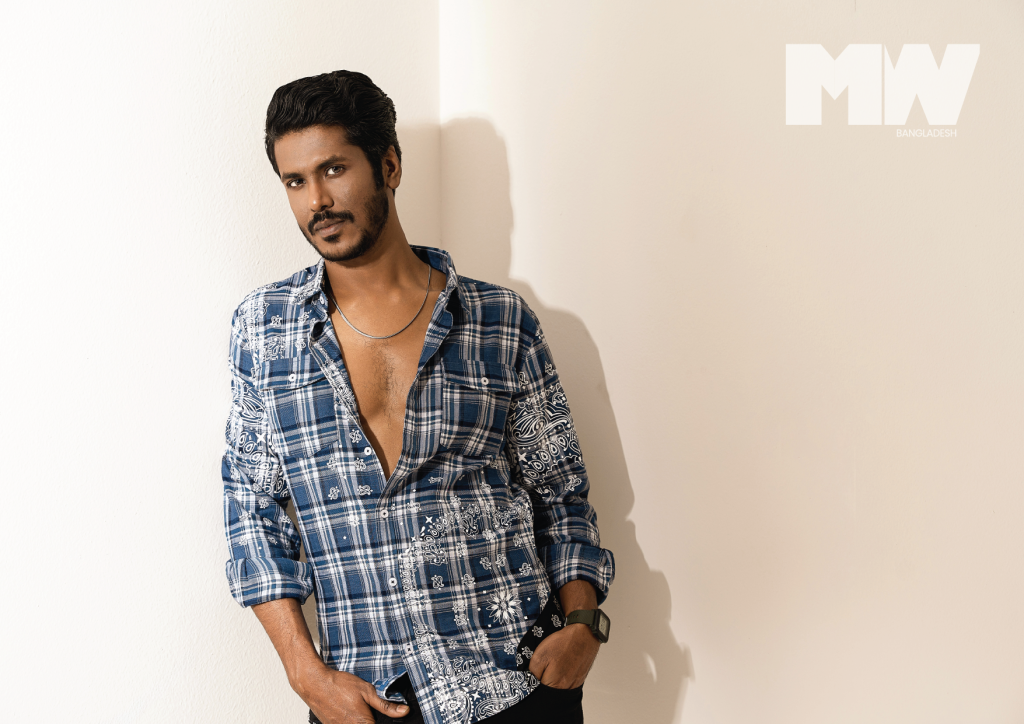
I learned so much from that experience, and that was the real achievement. Winning a Filmfare Award for it feels great, but the only true accomplishment is when the audience connects with my work. My biggest achievement is my personal growth and everything I’ve learned throughout this journey.
Can you share any behind-the-scenes stories from Hawa or Aynabaji?
We had a lot of memorable experiences while shooting Hawa, as we stayed in Saint Martin for more than 40 days. Spending such a long time there meant collecting countless memories. One of the most thrilling experiences was getting stuck on the island for five days due to bad weather. It rained heavily, making it impossible to leave.
Another unforgettable story was during the shooting of a chasing scene in the sea. We didn’t have life jackets and shot the scene for four consecutive days, spending five hours in the water each day. It was extremely challenging. We used a buoy to catch our breath before jumping back into the action. Mejbaur Rahman Sumon the director himself along with Rizvi Rizu, the cameraman, actor Tilottoma Shome and I were all part of the scene. It was an intense experience—400 meters from the island, surrounded by huge waves. When I saw the scene on screen, I couldn’t believe how we managed to pull it off.
After Under Construction, my second film was Aynabaji, which was a long time ago. I don’t remember much, but it was my first time working with Chanchal Chowdhury and Amitabh Reza Chowdhury. We shot in Old Dhaka, and it was a fun experience. I learned a lot from both of them.
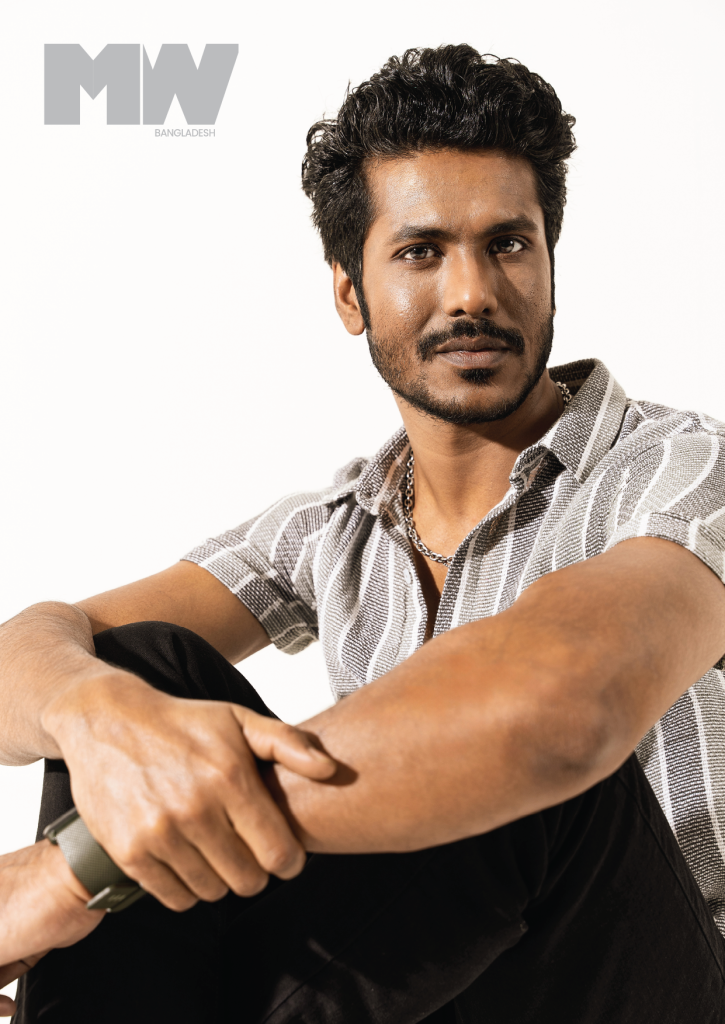
How do you prepare for emotionally intense roles?
To prepare for an intense role, you have to understand where the character’s emotions are stemming from. Why is the character behaving the way he is? It’s important to explore the background of the intense moment—what caused it and how other characters are reacting to it. After all, an intense situation doesn’t just happen out of the blue, right?
I try to find the root cause and understand how the other characters are responding. I also focus on learning the dialogues, understanding the character’s psychology, and visualizing how the director imagines the scene. Once I have that clarity, I deliver my interpretation in front of the director. With their guidance, I refine the performance, as it’s ultimately up to the director to shape the final delivery.
Which director or actor has influenced you the most?
A lot of directors have influenced me, and to name a few: Dibakar Banerjee is my favorite director. Robi Alam Robi has had a big influence on me as well. One of my favorite actor-directors is Jason Bateman—he’s both a brilliant director and actor. Like everyone else, I’m a huge fan of Christopher Nolan. I admire his visual style and philosophy. Alejandro González Iñárritu has also been a major influence.
There are many names that come to mind, including Anurag Kashyap. As for actors, I have to mention Irrfan Khan, Matthew McConaughey, Michael K. Williams, and Konkona Sen Sharma. There are so many more; I could go on and on.
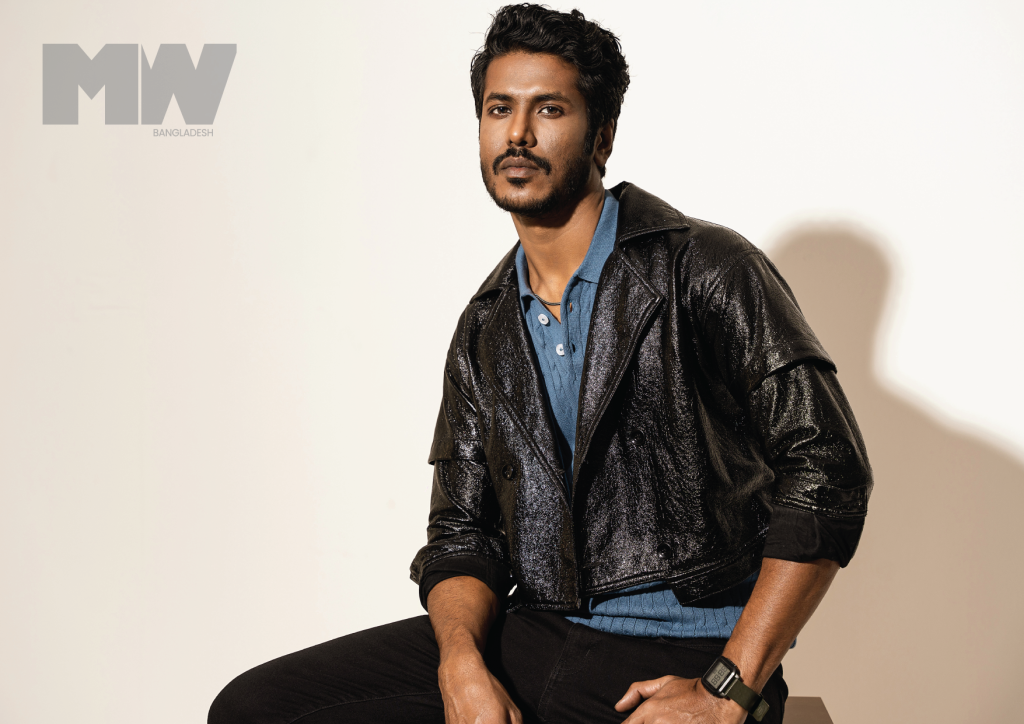
What kind of roles do you dream of playing in the future?
I’ve played many intense roles, but I want to explore romcoms, situational comedies, biographies, or dramas. I love drama, but I don’t dream of any particular role. I want to touch all genres and try something new that I haven’t played before—something outside my comfort zone. I enjoy being challenged. I like to test the waters and see myself in new characters, constantly evolving as an actor.
How do you choose your projects—what draws you to a script?
The first thing I notice is whether the story grabs me—whether I believe in it or not. The story is the most important part. Then I consider my character: how it fits into the story and what impact it has. First, it’s the story, then the character, the director, and finally the production. I assess if the production is capable. A bad story can be portrayed well with great direction and production, while a good story can be ruined if those aspects are flawed.
I don’t follow this approach for television dramas because commercial work doesn’t offer that creative freedom. I see it as a source of income. But when it comes to films, I carefully consider these factors.
What advice would you give to young actors trying to break into the industry?
Do whatever you can to learn first—it will help you in the long run, and you’ll enjoy the profession even more. This profession comes with obstacles, and learning will help you deal with them. Training is essential. It can come from anywhere—self-training, workshops, schools, or theatre. No matter the profession, training is crucial. You don’t have to start from scratch. If you’re trained, you’ll understand the work more easily and be able to sustain yourself in the long run.
How do you balance your personal life with your demanding acting career?
Balancing my personal life with my demanding acting career is very difficult. It often clashes with family events—if there’s a function, I might be working somewhere, or if I’m deeply involved in a character, I tend to isolate myself. This can make it hard for family members or partners to understand. It’s a challenge to balance both. Our profession requires more concentration than others, so balance becomes everything. Over time, my family does understand, but it’s still a struggle. As an actor, my life motto is, “The show must go on.”
If you weren’t an actor what would you be instead
I wanted to join the air force because of my love for flying. I never really planned anything; I let life guide me. I don’t plan what I’ll do in the next 10 days— I just let life take its course. But if I ever have a lot of money, I will learn how to fly a plane. It’s something I’ve always wanted to do.
What’s next for you—any upcoming projects you’re excited about?
I am very excited about Banalata Sen, where I’ll be working with Khairul Bashar and Masuma Rahman Nabila. It’s a film about Jibanananda Das. We will soon announce the release date. Another thing I am excited about is my film Shyama Kabya directed by Badrul Anam Soud which will soon be released on Bongo on the 20th February for Valentine’s day. I’m also working on many other projects, and you’ll get to see them soon.
Shohel Mondol’s journey as an actor showcases his dedication, passion, and versatility across theater, film, and web series. His naturalistic acting, shaped by years of theater training, has made him a standout talent in Bangladesh’s entertainment industry. Known for taking on challenging roles and stepping out of his comfort zone, Shohel continues to push creative boundaries. His growth reflects not only his skill but also his belief in storytelling and personal development. With exciting projects ahead, Shohel’s journey is just beginning, promising many more unforgettable performances.




